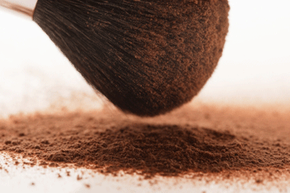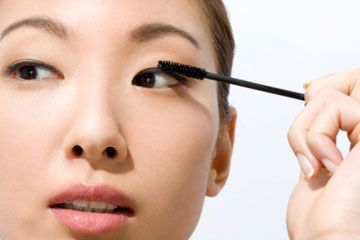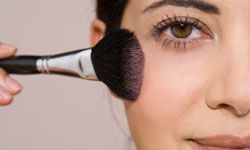Are you a cosmetics aficionado? Do you know the difference between liquid foundations and pressed powder? Do you know how to make your eyes pop? If you own the perfect shade of lipstick and blush for every dress in your closet -- well, you probably know your makeup. According to the Global Cosmetics Industry Magazine, cosmetics generate approximately $230 billion in global sales every year, so it's clear that women buy makeup even in tough economic times. And why shouldn't they? Makeup helps boost ladies' confidence, highlights natural features such as eye color and cheekbones, and can enhance a mood with a simple sweep of a sexy lip color.
Whether you like to buy drugstore cosmetics or spend your dollars at higher-end makeup counters, the products you buy won't help your skin glow if you don't have quality makeup brushes. The right brushes bring your cosmetics palette to life, and they can mean the difference between a flawless face and a clowny mess.
Advertisement
So, how can you tell if you're buying a winning makeup brush? There's one simple test to find a durable and high-quality brush: Rub it against your skin. The bristles should feel soft, not rough or scratchy. To test the strength of the bristles, run the brush against your hand to see if any fibers fall out. If they do, don't buy it. If the bristles stay intact and feel soft, it's a keeper.
Finding great makeup tools goes beyond testing for bristle strength, however. Let's take a look at how to recognize a quality brush that can tackle your makeup case.
Advertisement



